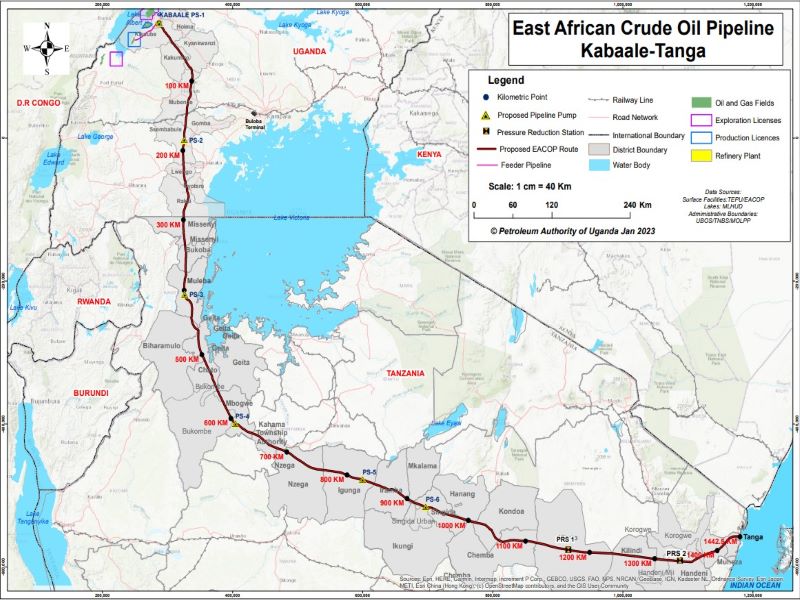
Uganda’s energy minister Ruth Nankabirwa has been invited to Beijing by the Chinese Government to discuss the country’s $5bn East African Crude Oil Pipeline (EACOP).
Uganda needs the pipeline in order to start production from oilfields that were discovered in 2006, and the presidency hopes for investment from Chinese financiers to fund the pipeline.

Discover B2B Marketing That Performs
Combine business intelligence and editorial excellence to reach engaged professionals across 36 leading media platforms.
Western banks have declined to fund the EACOP citing environmental concerns with the project as it could add to global carbon emissions. The list of commercial banks that have opted out of financing include JP Morgan Chase and BNP Paribas. Insurance companies Aegis, Canopius and Britam have also refused involvement.
EACOP will run from Lake Albert in Uganda to the Port of Tanga in Tanzania, spanning 1,443km. From the Tanzanian coast, the oil delivered through the pipeline will be shipped to international markets.
According to the think tank China Dialogue, EACOP has secured $2bn in funding as of September 2023 but is looking for a further $3bn. French company TotalEnergies is currently the largest shareholder in the project, owning 62%.
China’s special envoy for the Horn of Africa Affairs, Xue Bing, delivered a message to Ugandan President Yoweri Museveni on Thursday, stating that Chinese President Xi Jinping expressed his support for the pipeline, according to Reuters.

US Tariffs are shifting - will you react or anticipate?
Don’t let policy changes catch you off guard. Stay proactive with real-time data and expert analysis.
By GlobalData“Chinese financial institutions are open to discussions on the project and extended an invitation to Hon. Ruth Nankabirwa, the Minister of Energy and Mineral Development, to visit China for further discussions,” Museveni’s office said.
The office added that in the letter Xi said “I am in full support of EACOP. I believe that it will enhance socio-economic development for the region”.
However, the pipeline faces ongoing opposition on environmental and humanitarian grounds. In a report on the project, Felix Horne, senior environment researcher at Human Rights Watch, said: “EACOP has been a disaster for the tens of thousands who have lost the land that provided food for their families and an income to send their children to school, and who received too little compensation from TotalEnergies. EACOP is also a disaster for the planet and the project should not be completed.
“Financial institutions considering funding EACOP should steer clear of this project and instead help Uganda embrace its significant clean energy potential,” he added.



